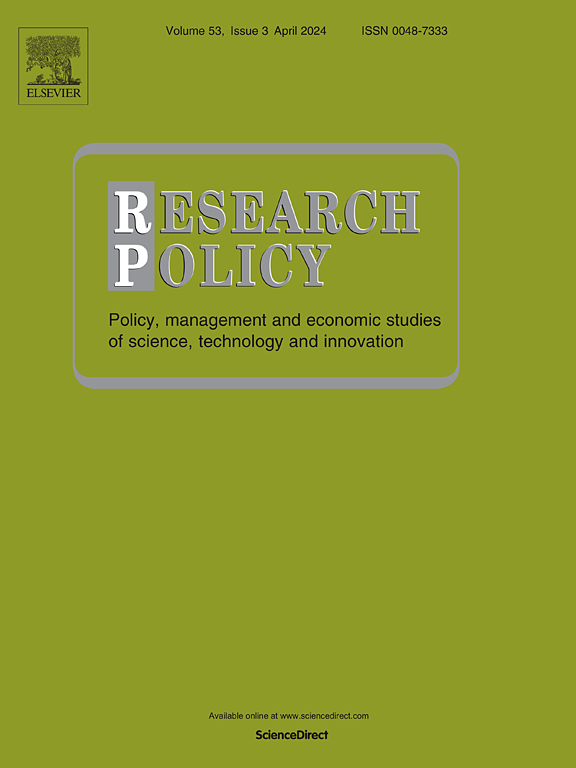空间、形式和层次参与:使用Powercube探索数字能源和移动系统中的社会包容
IF 8
1区 管理学
Q1 MANAGEMENT
引用次数: 0
摘要
能源和交通转型往往伴随着数字创新,以实现脱碳目标。对数字化的热情源于这样一种信念,即这种技术可以使能源和移动出行的供应和使用民主化,赋予房主和社区权力,最大限度地提高效率,并总体上提高生活质量。然而,实现这些好处取决于有效的包容、强有力的治理以及明确的共同责任和问责制概念。这些功能在实践中可能会受到限制。本研究通过电力视角考察了数字能源和移动系统中的社会包容性,并基于三个比较案例研究中的广泛、原始、混合方法数据:布莱顿(英国)的智能和本地能源系统;意大利特伦托的智能电表能源社区;以及卑尔根(挪威)城市交通系统的数字化。通过Gaventa的“Powercube”方法(一种综合分析和协同生产的工具),该研究询问了公平、正义和改善社会结果的主张。它考察了数字化能源系统的现状和潜力。在方法上,本文通过分析Powercube方法在研究这些背景下的优缺点,提出了对Powercube方法的见解——目前在能源和流动性转型研究中尚未得到充分探索。从经验上讲,本文讨论了数字化提高能源和交通系统包容性的潜力,以及这对能源和社会结果的意义。研究结果强调,能源和移动系统的数字化以目前的形式发展,加剧了现有的不平等,巩固了排他性的决策实践,并在公共能源数据转为私人所有时创造了新的封闭空间。本文章由计算机程序翻译,如有差异,请以英文原文为准。
Spaces, forms, and levels engagement: Using the Powercube to explore social inclusion in digital energy and mobility systems
Energy and mobility transitions are often coupled with digital innovations to meet decarbonisation goals. Enthusiasm for digitalisation arises from the belief that such technologies can democratize energy and mobility supply and use, empower homeowners and communities, maximise efficiencies, and generally improve quality of life. However, realising these benefits depends upon effective inclusion, strong governance, and clear conceptions of shared responsibilities and accountability. These features can be limited in practice. This study examines social inclusion in digital energy and mobility systems through a power lens, and based on extensive, original, mixed-methods data across three comparative case studies: smart and local energy systems in Brighton (UK); smart meter-enabled energy communities in Trento (Italy); and digitalisation of urban mobility systems in Bergen (Norway). Through Gaventa's “Powercube” approach, a combined analytical and co-productive tool, the study interrogates claims of equity, justice, and improved social outcomes. It examines the state of, and potential for, inclusion in digitalised energy systems. Methodologically, the paper presents insights into the Powercube method – currently underexplored in energy and mobility transition scholarship – by analysing its strengths and weaknesses in studying these contexts. Empirically, the paper discusses the potential of digitalisation to increase energy and mobility system inclusion, and what this means for energy and social outcomes. Findings highlight that, pursued in their current forms, digitalisation of energy and mobility systems is exacerbating existing inequalities, entrenching exclusive decision practices, and creating new closed off spaces as public energy data is moved into private ownership.
求助全文
通过发布文献求助,成功后即可免费获取论文全文。
去求助
来源期刊

Research Policy
MANAGEMENT-
CiteScore
12.80
自引率
6.90%
发文量
182
期刊介绍:
Research Policy (RP) articles explore the interaction between innovation, technology, or research, and economic, social, political, and organizational processes, both empirically and theoretically. All RP papers are expected to provide insights with implications for policy or management.
Research Policy (RP) is a multidisciplinary journal focused on analyzing, understanding, and effectively addressing the challenges posed by innovation, technology, R&D, and science. This includes activities related to knowledge creation, diffusion, acquisition, and exploitation in the form of new or improved products, processes, or services, across economic, policy, management, organizational, and environmental dimensions.
 求助内容:
求助内容: 应助结果提醒方式:
应助结果提醒方式:


